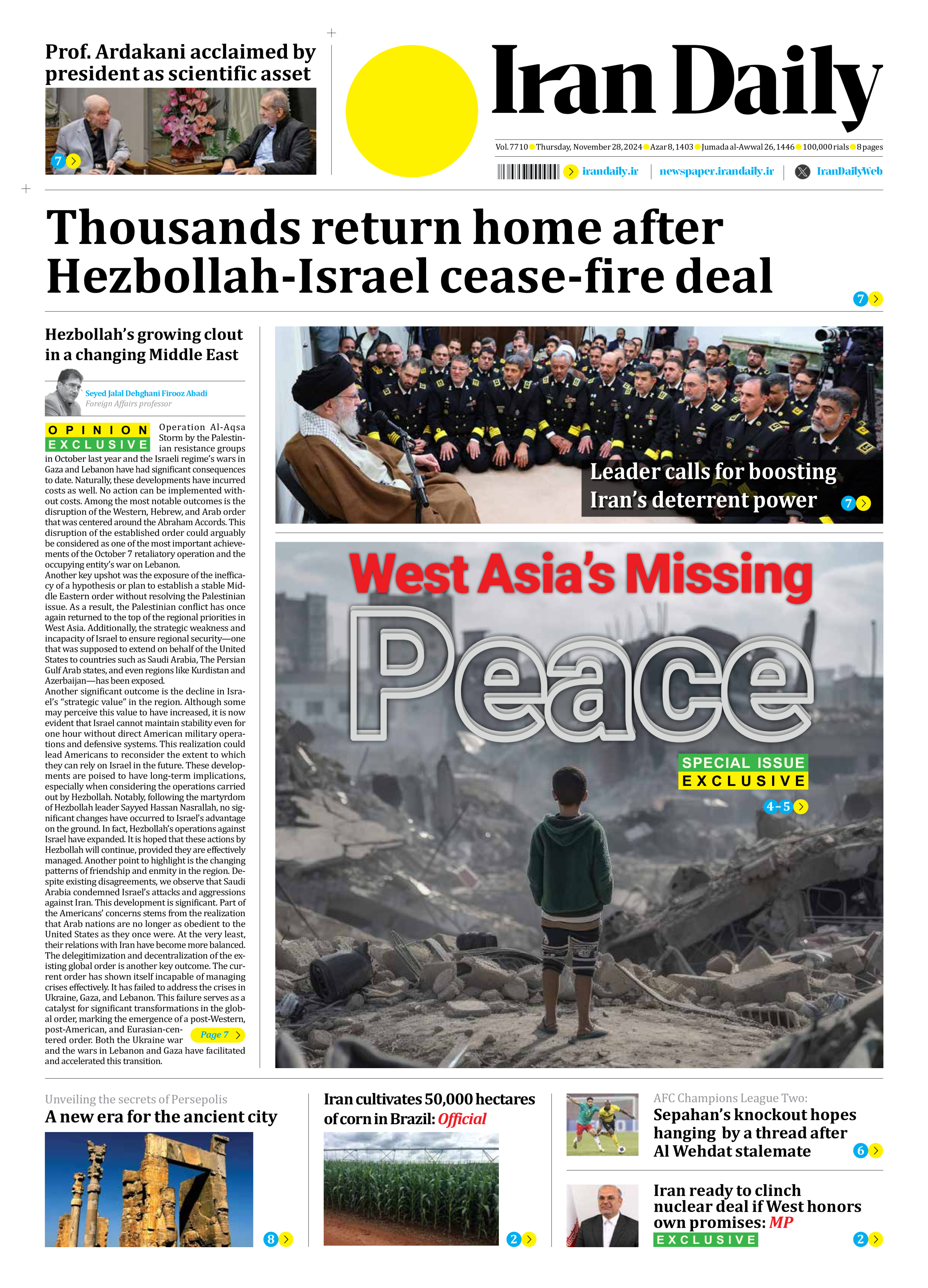
Hezbollah’s growing clout in a changing Middle East
Seyed Jalal Dehghani Firooz Abadi
Foreign Affairs professor
Operation Al-Aqsa Storm by the Palestinian resistance groups in October last year and the Israeli regime’s wars in Gaza and Lebanon have had significant consequences to date. Naturally, these developments have incurred costs as well. No action can be implemented without costs. Among the most notable outcomes is the disruption of the Western, Hebrew, and Arab order that was centered around the Abraham Accords. This disruption of the established order could arguably be considered as one of the most important achievements of the October 7 retaliatory operation and the occupying entity’s war on Lebanon.
Another key upshot was the exposure of the inefficacy of a hypothesis or plan to establish a stable Middle Eastern order without resolving the Palestinian issue. As a result, the Palestinian conflict has once again returned to the top of the regional priorities in West Asia. Additionally, the strategic weakness and incapacity of Israel to ensure regional security—one that was supposed to extend on behalf of the United States to countries such as Saudi Arabia, The Persian Gulf Arab states, and even regions like Kurdistan and Azerbaijan—has been exposed.
Another significant outcome is the decline in Israel’s “strategic value” in the region. Although some may perceive this value to have increased, it is now evident that Israel cannot maintain stability even for one hour without direct American military operations and defensive systems. This realization could lead Americans to reconsider the extent to which they can rely on Israel in the future. These developments are poised to have long-term implications, especially when considering the operations carried out by Hezbollah. Notably, following the martyrdom of Hezbollah leader Sayyed Hassan Nasrallah, no significant changes have occurred to Israel’s advantage on the ground. In fact, Hezbollah’s operations against Israel have expanded. It is hoped that these actions by Hezbollah will continue, provided they are effectively managed. Another point to highlight is the changing patterns of friendship and enmity in the region. Despite existing disagreements, we observe that Saudi Arabia condemned Israel’s attacks and aggressions against Iran. This development is significant. Part of the Americans’ concerns stems from the realization that Arab nations are no longer as obedient to the United States as they once were. At the very least, their relations with Iran have become more balanced.
The delegitimization and decentralization of the existing global order is another key outcome. The current order has shown itself incapable of managing crises effectively. It has failed to address the crises in Ukraine, Gaza, and Lebanon. This failure serves as a catalyst for significant transformations in the global order, marking the emergence of a post-Western, post-American, and Eurasian-centered order. Both the Ukraine war and the wars in Lebanon and Gaza have facilitated and accelerated this transition.
Page 7







